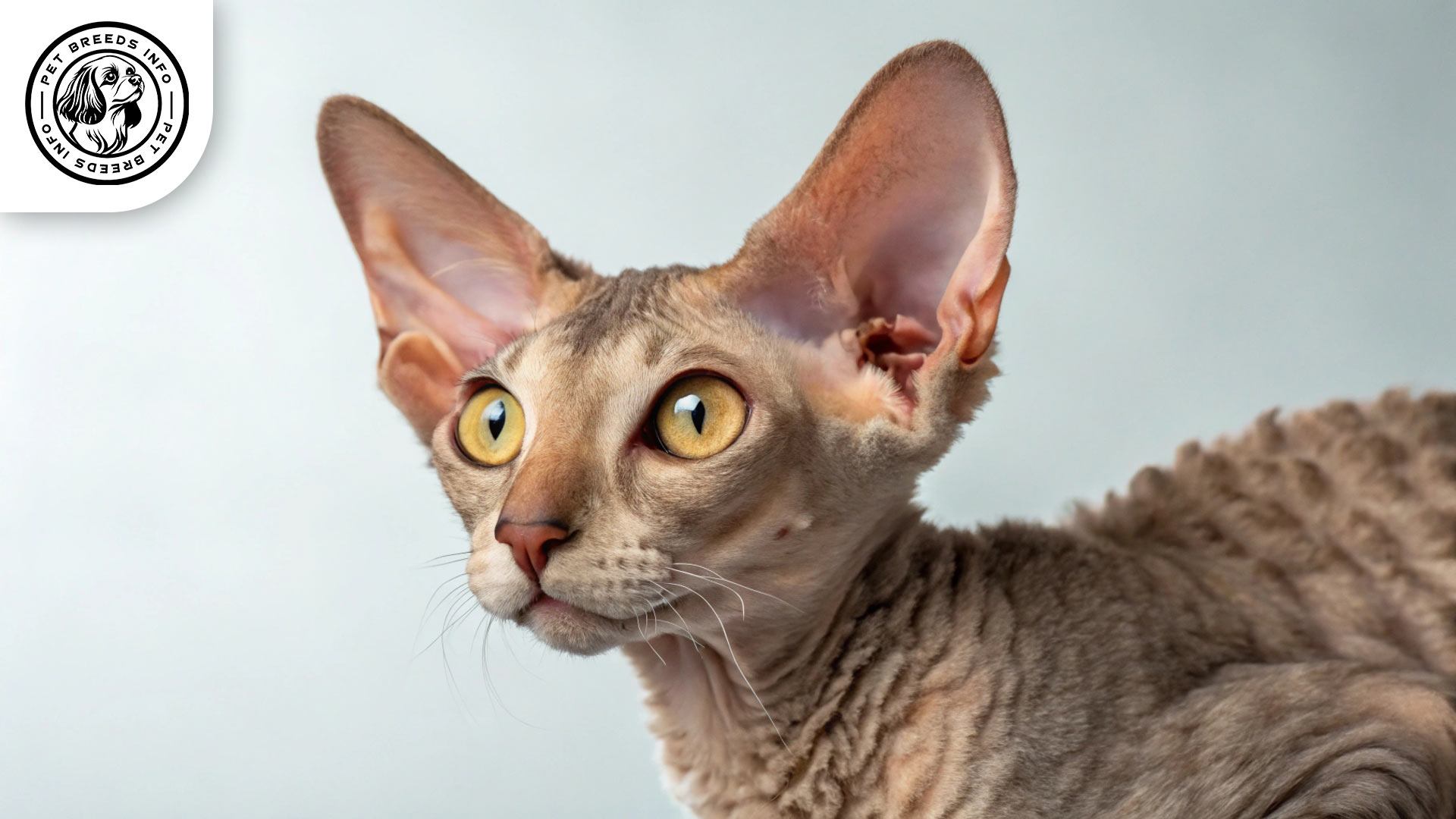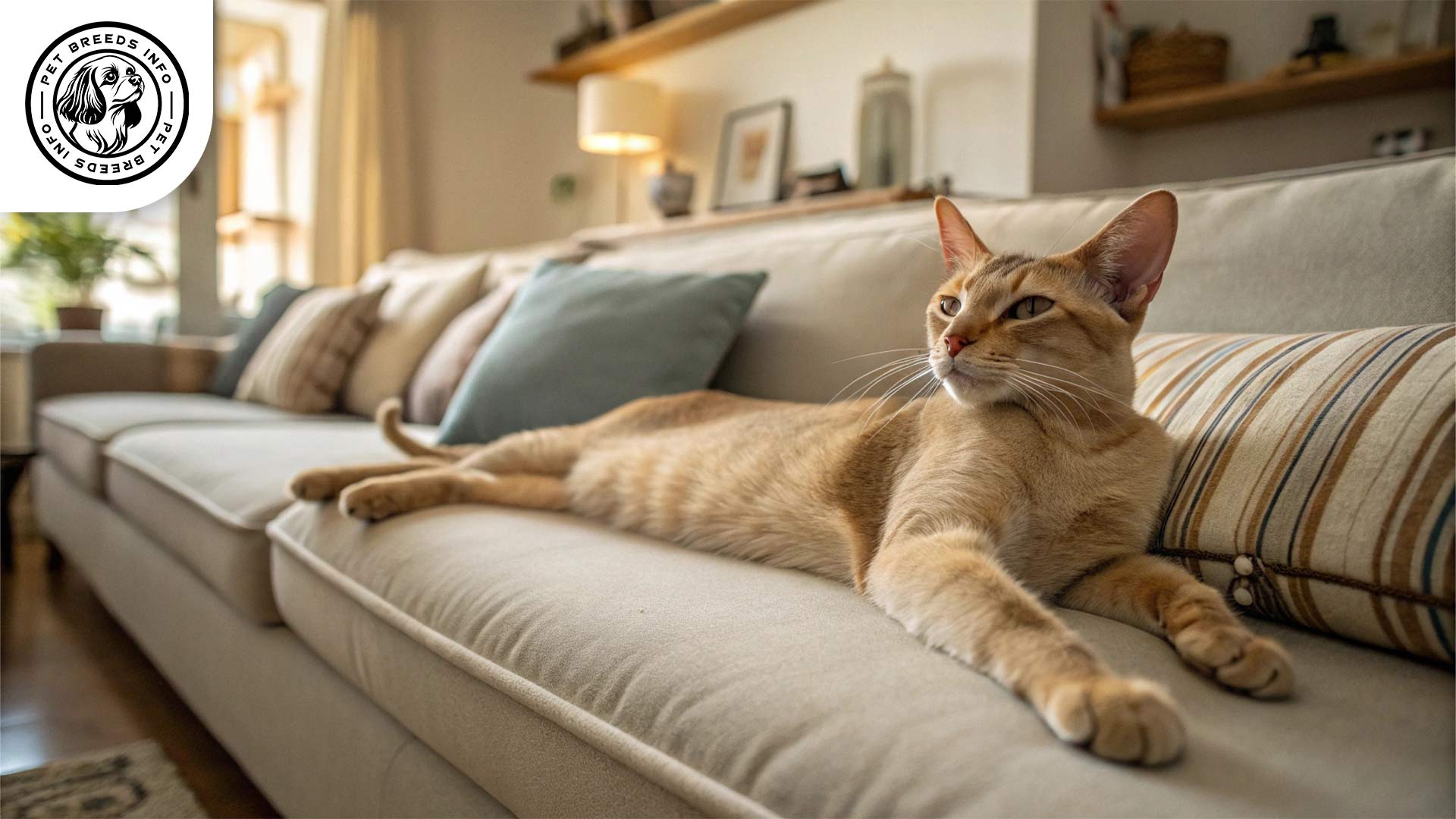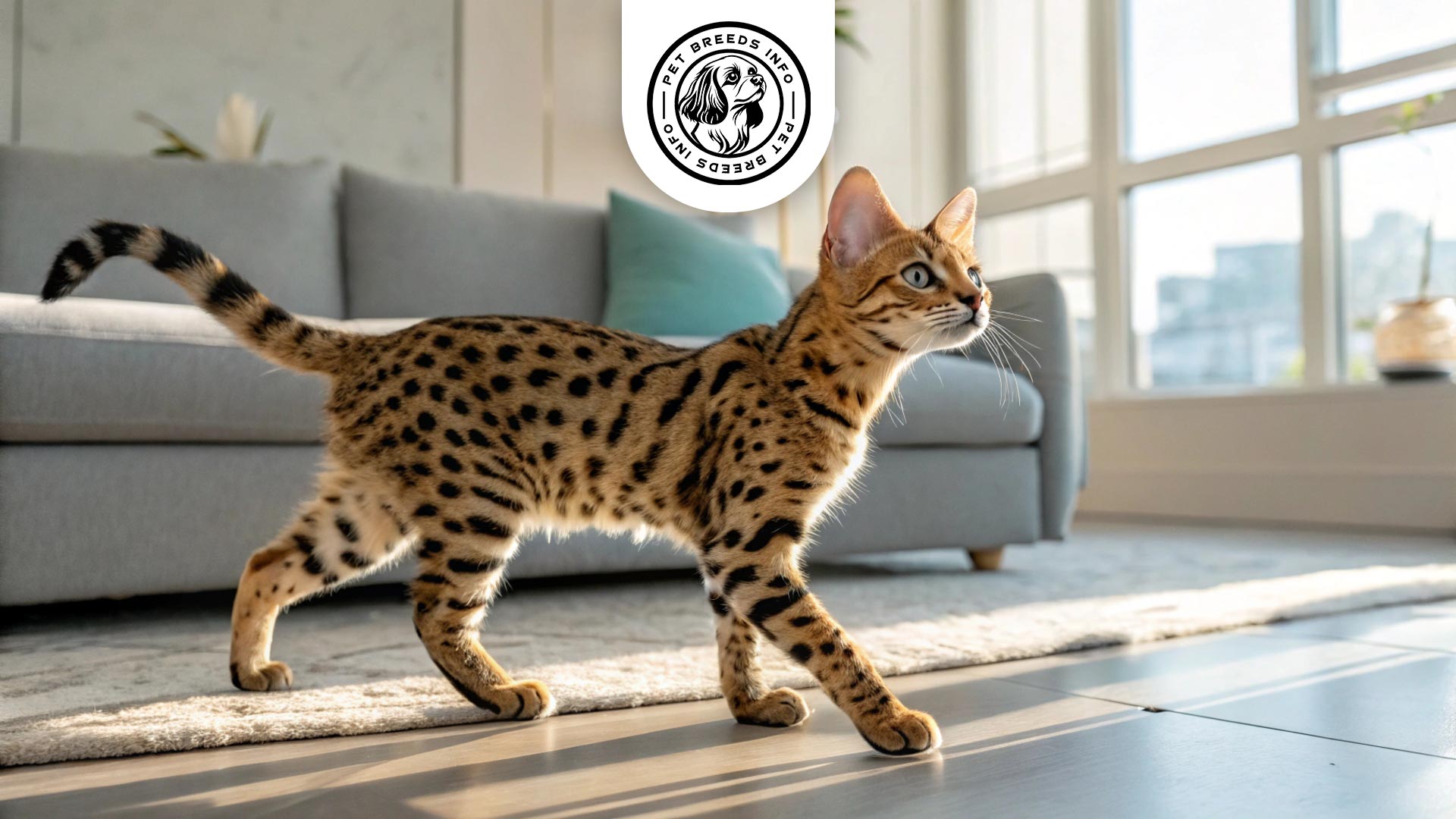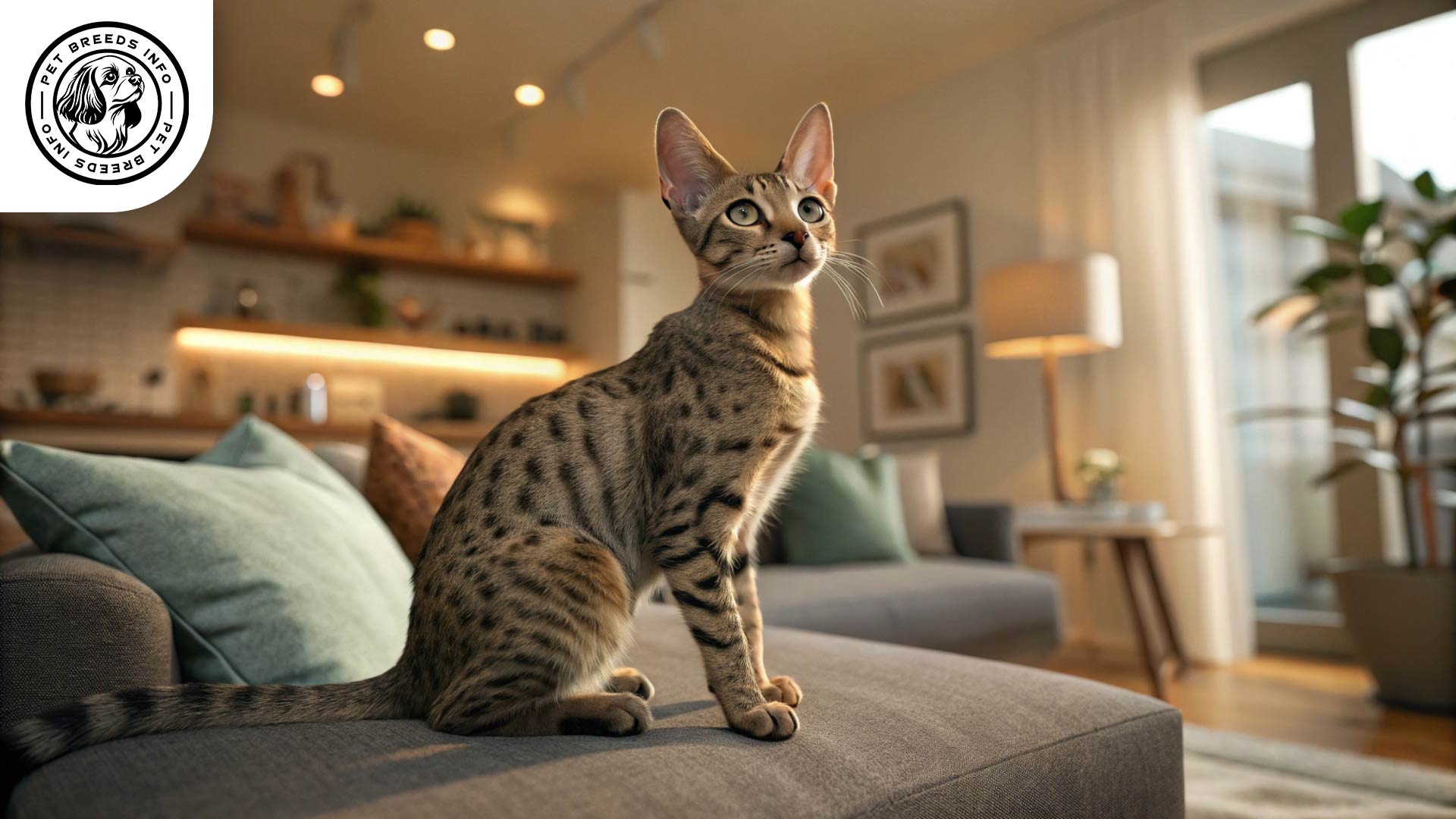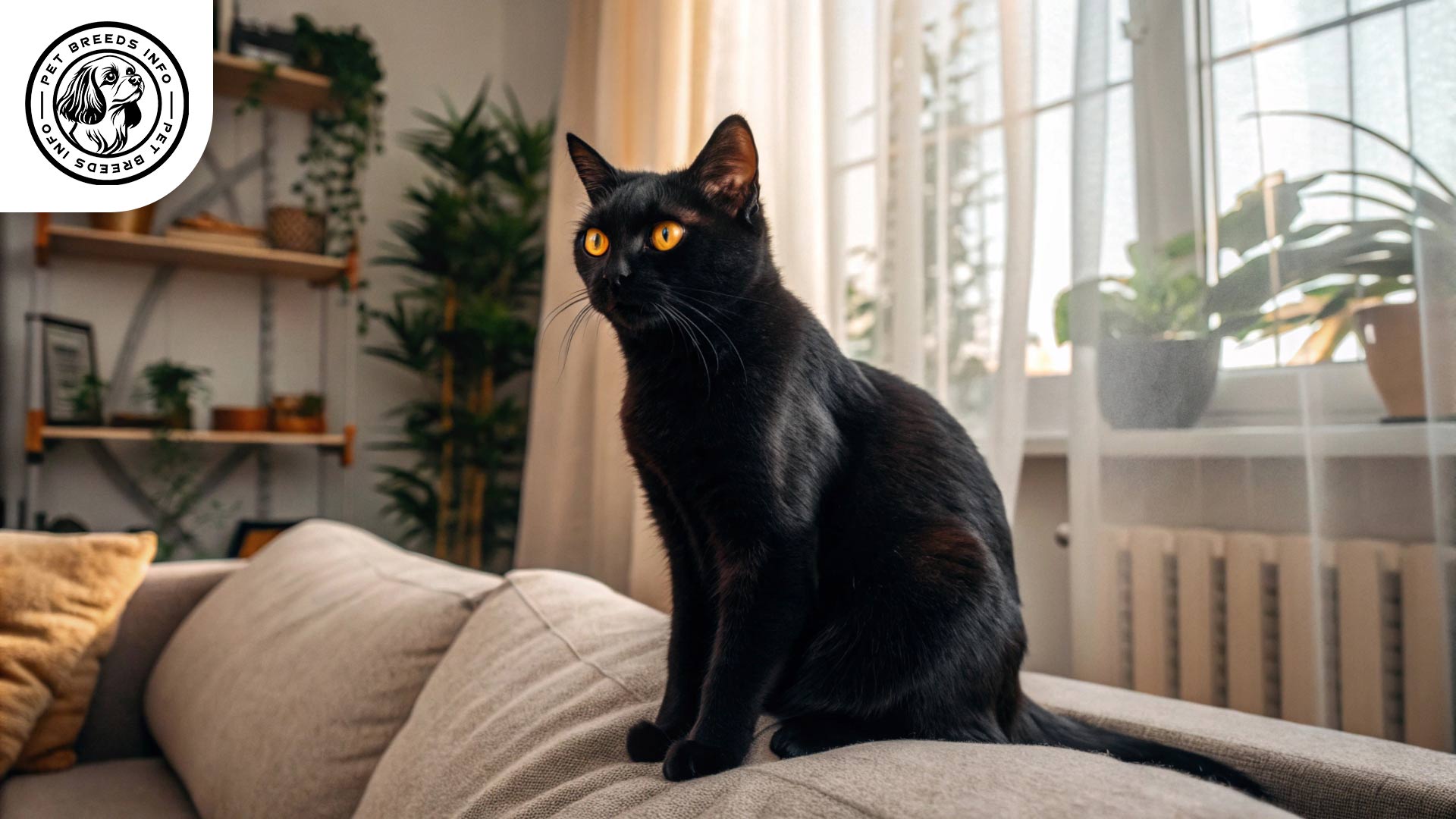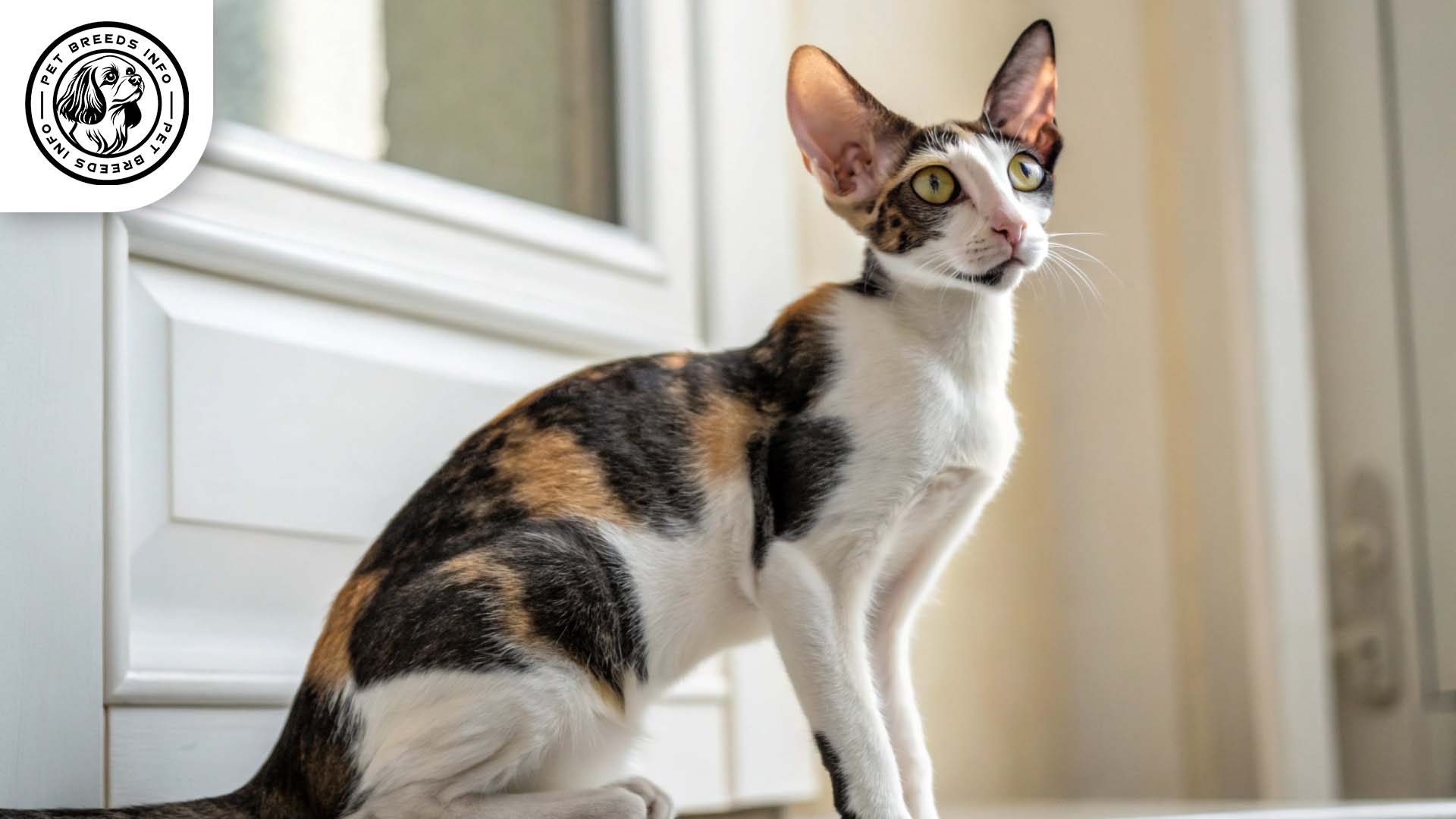Cornish Rex Cat Breed: Size, Health, Price & Personality
General Introduction of the Breed
The Cornish Rex is a strikingly elegant cat breed with a one-of-a-kind curly coat and a sleek, slender body that turns heads. Hailing from Cornwall, England, this breed, often just called the Cornish Rex, has a fascinating origin story. It all began in 1950 when a unique curly-coated kitten, Kallibunker, popped up in a litter of regular domestic cats. Breeders saw something special and, through careful selective breeding, turned that quirky genetic mutation into the charming breed we adore today. With its playful vibe and distinctive look, the Cornish Rex is a true gem for cat lovers.
The Cornish Rex is an energetic, affectionate, and playful cat with a unique curly coat, perfect for families craving a lively, people-loving companion.Quick Overview
Affectionate - 95%
Independent - 45%
Intelligent - 90%
Sociable - 90%
Vocal - 75%
Shedding - 20%
Energetic - 95%
73%
100
| Weight | Males: 6-10 lbs; Females: 5-8 lbs |
| Lifespan | 12-15 years |
| Diet | High-quality protein-rich wet or dry cat food; Raw diet (with vet guidance); Small portions 2-3 times daily; Avoid chocolate, onions, garlic, dairy, salty/processed food. |
| Care | High exercise needs; Interactive play & climbing; Minimal grooming (soft rubdown); Temperature sensitive (needs warmth, avoid sun); Regular hygiene (baths, nails, ears, teeth). |
| Health | Prone to HCM, patellar luxation, skin conditions; Susceptible to hypothermia/sunburn; Regular vet check-ups & vaccinations essential. |
| Colors | White, black, blue, chocolate, red, cream, lavender, tortoiseshell, tabby |
| Nature | Intelligent, playful, energetic, affectionate, sociable, trainable, sensitive, needs companionship. |
| Price | $800 – $2,000 (kitten from reputable breeder) |
Table of Contents
Physical Characteristics
The Cornish Rex is a medium-sized cat with a sleek, muscular body. Males typically weigh between 6-10 pounds, while females usually weigh 5-8 pounds.
One of the most striking features of this breed is its short, soft, and wavy coat, which lacks guard hairs. Common coat colors include white, black, blue, chocolate, red, cream, and various patterns like tortoiseshell and tabby.
Their eyes are oval-shaped and can range in color from gold to green and blue. The ears are large, high-set, and pointed, contributing to their alert expression. The tail is long, thin, and slightly curved.
Other distinct traits include a small, dainty head, high cheekbones, a slightly upturned nose, and long, slender legs.
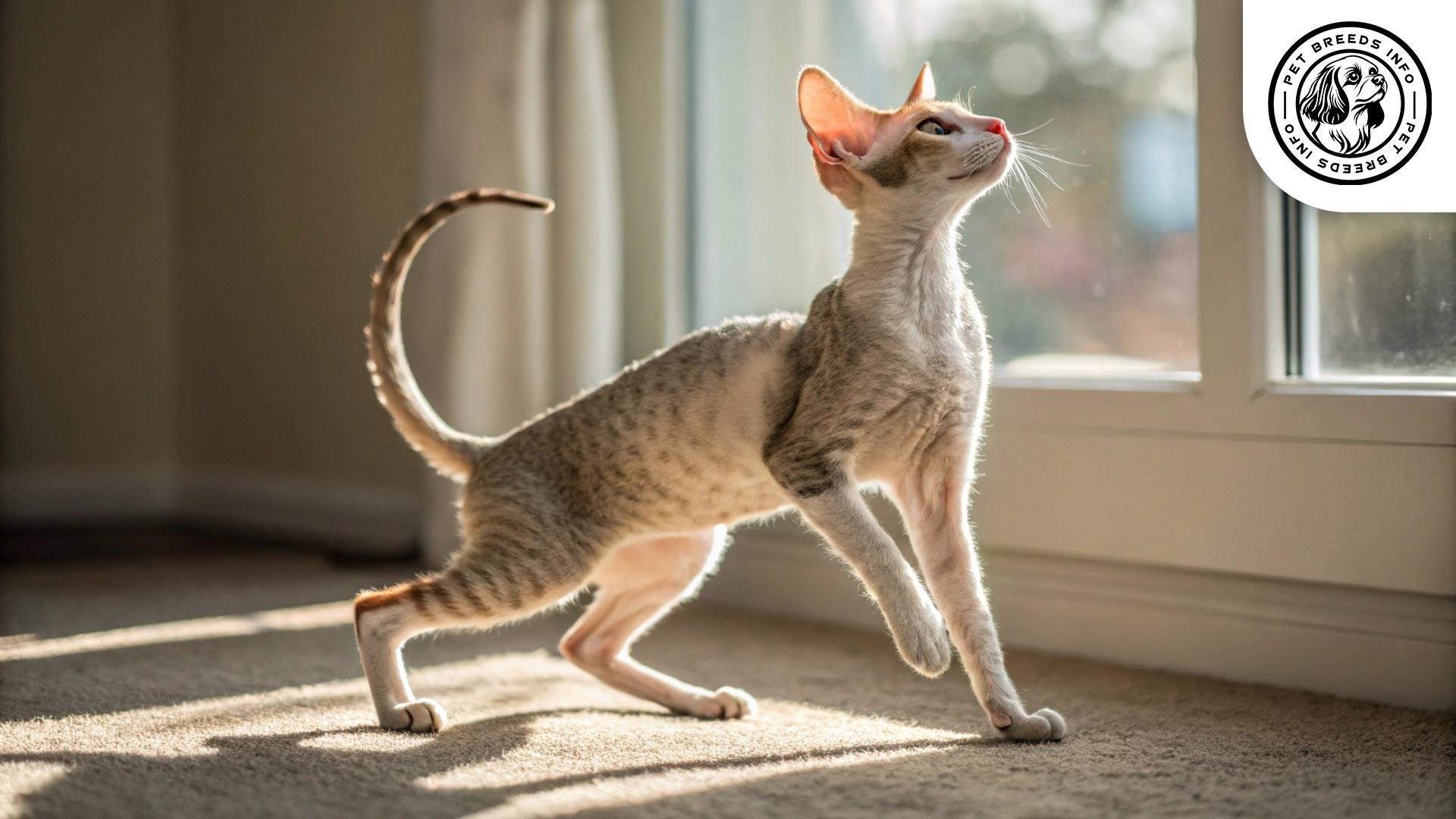
Personality and Temperament
The Cornish Rex is highly intelligent and quick to learn new tricks. They are playful, curious, and always on the move.
These cats have a high energy level and require a good amount of daily activity. They love to climb, jump, and explore and benefit from interactive play sessions.
The Cornish Rex forms strong bonds with its owners and thrives on human interaction. They are affectionate and often follow their owners around the house.
They get along well with children and other pets, making them a great addition to multi-pet households.
They have a strong hunting instinct and love to chase toys. They also tend to be sensitive to changes in their environment and prefer stability in their daily routine.
Care and Maintenance Requirements
Due to their playful nature, Cornish Rex cats need plenty of exercise and engagement. Interactive toys and climbing structures are great for keeping them entertained.
They are well-suited for apartment living due to their size and adaptability, but they still need space to climb and explore.
Their short coat requires minimal grooming. A gentle rubdown with a soft cloth or hand can help remove any dirt or loose hairs. They shed very little compared to other breeds.
These cats are sensitive to temperature extremes. They may seek warmth when cold and should be protected from direct sun exposure to prevent skin damage.
Read More: Colorpoint Shorthair Cat
Regular hygiene care includes occasional baths, nail trimming, ear cleaning, and dental maintenance to keep them in optimal health.
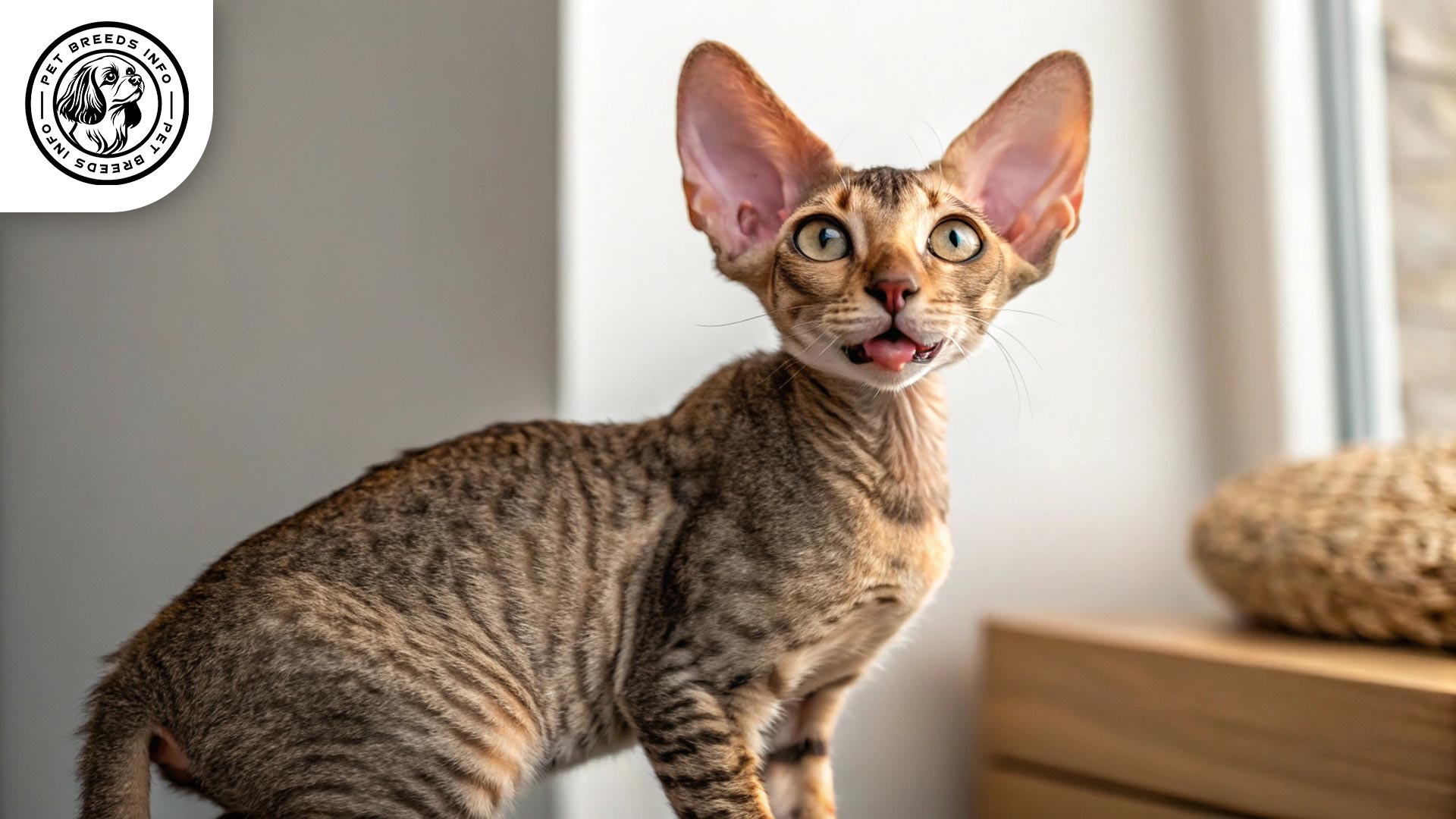
Diet and Nutrition
The Cornish Rex thrives on a high-quality diet packed with protein-rich wet or dry cat food to keep its sleek, curly-coated body in top shape. Some owners choose a raw diet, but only with veterinary guidance to ensure it’s safe and balanced. Thanks to their fast metabolism, these lively cats may need more frequent meals than other breeds think small portions served 2-3 times a day to keep them energized. Steer clear of toxic foods like chocolate, onions, garlic, dairy, or overly salty and processed foods to keep your Cornish Rex healthy and happy.
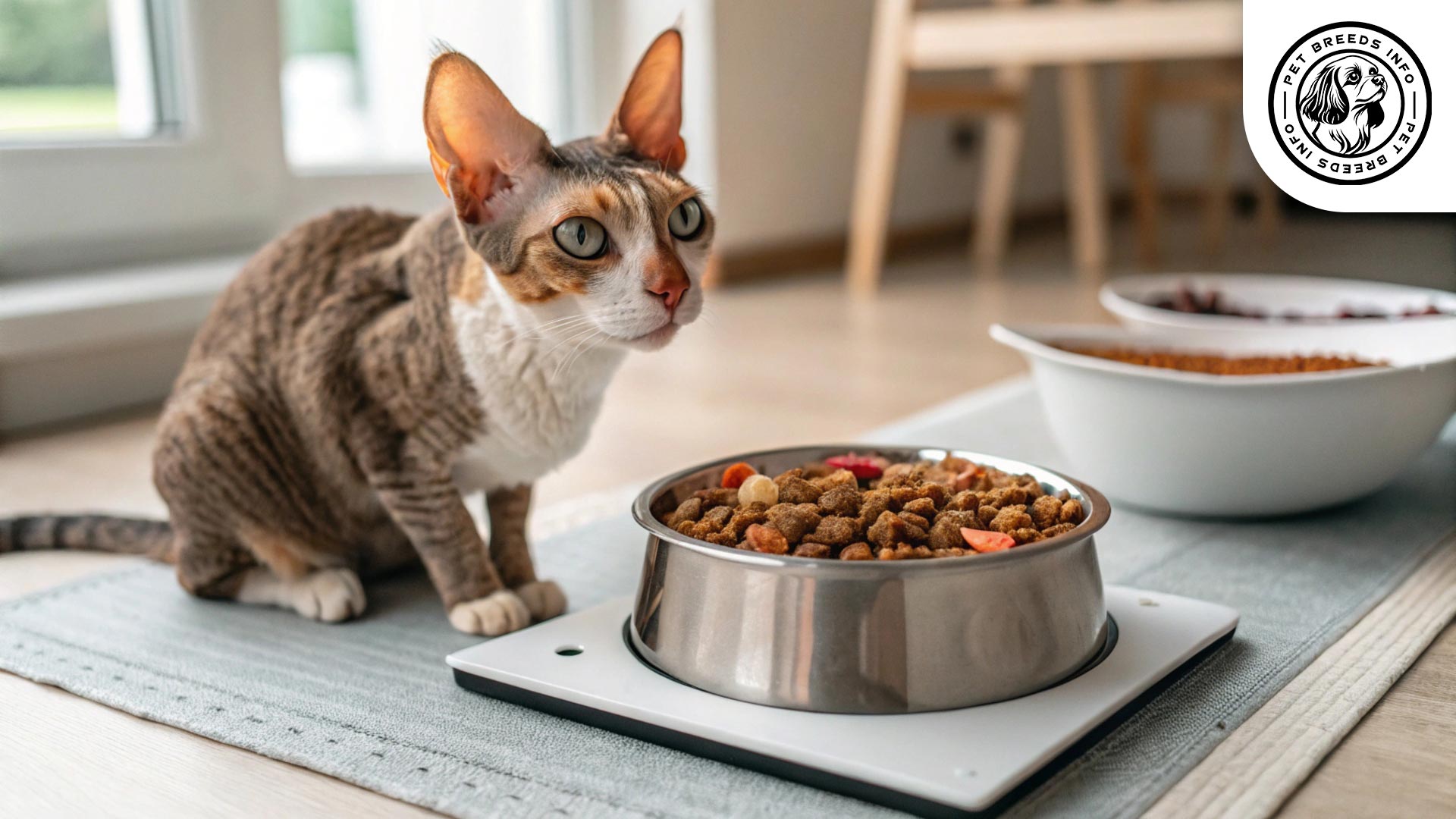
Health and Common Medical Issues
Overall, the Cornish Rex is a healthy breed, but they are prone to certain genetic conditions, such as hypertrophic cardiomyopathy (HCM), patellar luxation, and certain skin conditions.
Their lack of fur protection makes them susceptible to temperature-related issues like hypothermia or sunburn.
The average lifespan of this breed is 12-15 years with proper care.
Routine veterinary visits, vaccinations, and regular check-ups are essential for maintaining their health.
Training and Behavior Management
The Cornish Rex is easy to train due to its intelligence and eagerness to please. They respond well to positive reinforcement methods like treats and praise.
Early socialization is crucial to ensure they develop well-rounded personalities. Exposure to different people, pets, and environments helps them become more adaptable.
Providing plenty of interactive toys, scratching posts, and mentally stimulating activities helps prevent destructive behavior.
Read More: Cymric Cat
Interaction with Other Animals and Humans
The Cornish Rex is known for being friendly and affectionate with people of all ages. They enjoy playing with children and develop strong bonds with their human families.
They usually get along well with other pets, including dogs and other cats, as long as they are properly introduced.
They are an excellent choice for both families and individuals looking for a highly interactive and affectionate pet.
This breed is not very independent and prefers human companionship. They may not do well if left alone for long periods.
Price and Availability
The price of a Cornish Rex kitten from a reputable breeder ranges from $800 to $2,000, depending on pedigree, breeder reputation, and location.
When adopting or purchasing, potential owners should ensure they choose responsible breeders who prioritize good health and ethical breeding practices.
Adoption from shelters or breed-specific rescues may also be an option for those looking for a more affordable way to provide a home for this unique breed.
Final Thoughts
The Cornish Rex is a loving, energetic, and intelligent breed that thrives on companionship and interaction.
They are best suited for active households, families with children, or individuals who can dedicate time to regular play and engagement.
Prospective owners should be prepared for their high energy levels, need for warmth, and strong attachment to their human family.
Overall, the Cornish Rex makes a fantastic pet for those who appreciate an affectionate and playful feline companion.
Read More: Cheetoh Cat
FAQ
What makes the Cornish Rex’s coat special?
It’s short, soft, and wavy, with no guard hairs — giving it a unique suede-like texture.
Are they high-maintenance?
Grooming is minimal, but they need lots of play, attention, and protection from cold or sun.
What health issues can affect them?
They may face HCM, patellar luxation, skin issues, and are vulnerable to hypothermia or sunburn.
Are they good with kids and other pets?
Yes! Cornish Rex cats are affectionate, playful, and usually get along well with children and other pets.
How much daily exercise does a Cornish Rex need?
They need at least 30–60 minutes of active play each day to stay happy and healthy.
